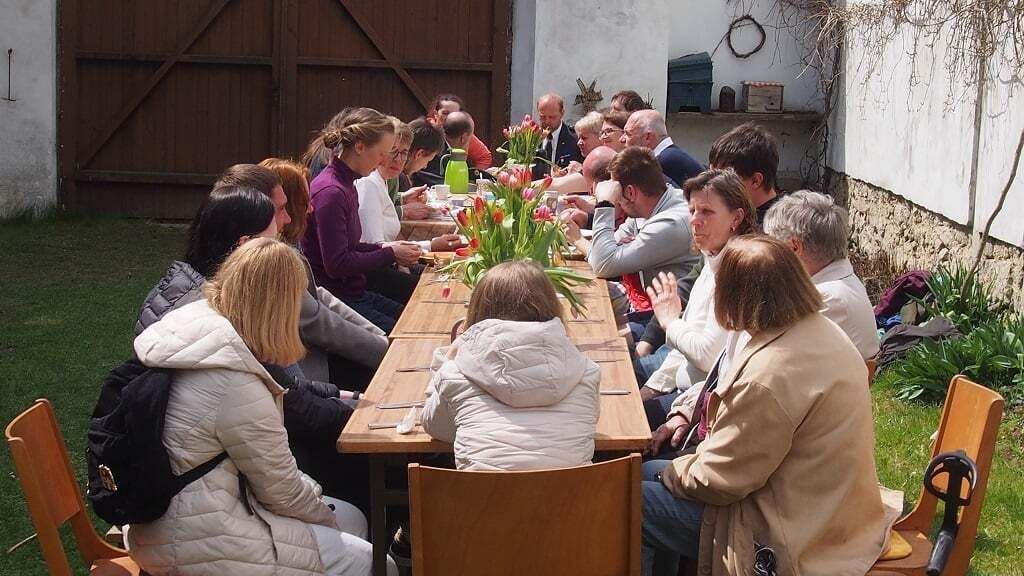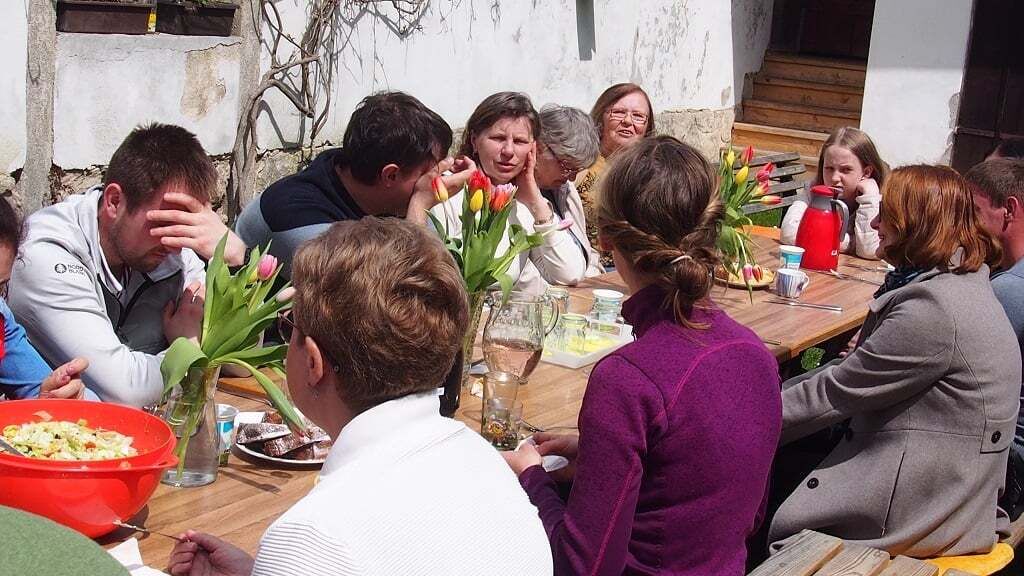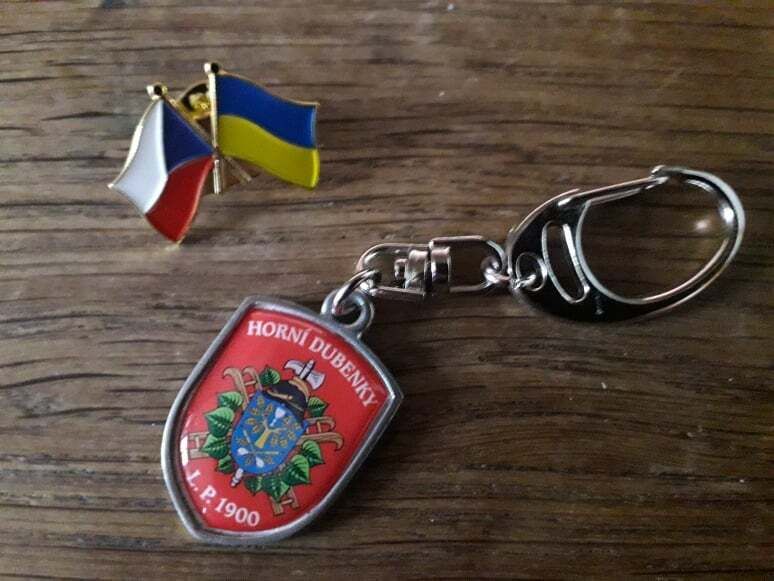Welcome to our family!
#ECCB Perhaps we would be hard pressed to find a place in the Czech Republic where aid to refugees from Ukraine is as intense, and yet as unlikely, as in Horní Dubenky...
Not because there are no open-hearted people in the village with the fairy-tale name, on the contrary, there are many of them. It's more about the fact that you won't find here any big social service centres, no crowds of professional field workers or just the facilities like in big cities.
Horní Dubenky is a tiny village in the middle of the Bohemian-Moravian Highlands, about halfway between Jihlava and Jindřichův Hradec. The local hilly landscape has been shaped throughout history mainly by two phenomena: the glassmaking tradition and the strong reformation movement.
Secret Protestants met in the forests in the vicinity and with the advent of the toleration patent, a parish congregation was established here. In 1786 they built a church with a rectory with their own hands.
And this very area became a center of help for people fleeing the war this year. The village, which itself has a population of less than 600, has offered accommodation to several Ukrainian refugees. They live in families and on the municipal premises. The evangelical parish has become a natural meeting place, a place to coordinate activities, a place to help...
They organize material aid for women and children. They collect clothes, shoes, food, as well as room furnishings and other necessities. They have set up a shared "office" on their premises for women who work online - offering them technology and internet access. They have helped other "their women", as they affectionately call them, to secure employment very quickly. "But on top of that, they have all volunteered to work for the community as well - to improve the neighbourhood. They consider it an honour and an expression of their gratitude," reveal the people of Dubenky.
"Hang on a second on the phone, I'm just leaving in my car...," Eva Tkadlečková, the wife of the local pastor of the Evangelical Church of Czech Brethren (ECCB) and the main coordinator of local events, suddenly interrupts our call. The amusing situation illustrates how fast-paced everything is around here.
After a few seconds of silence, she is back on the phone, patiently listening to me and trying to be responsive. I learn that she is just heading to the Czech classes they hold here three times a week. In addition, they also organize clubs, sports, trips for women and children... They have helped all those in need to deal with the state administration, accompanied them to offices or doctors' appointments, registrations, and compulsory vaccinations, and assisted them in finding jobs and schools.
At one of the regular Wednesday evening online meetings of all the congregational aid coordinators, they also talk about the participation and assistance of war refugees in various church activities. Great care is taken to ensure that Ukrainian guests are invited, but also to make it clear that participation in congregational life and worship is not in any way required.
And it is in Horní Dubenky that the activities take place quite naturally. Ukrainian children and youth have begun to meet spontaneously, adults seek out Pastor Hynek Tkadleček for conversations, and he in turn has incorporated elements of Sunday services in Ukrainian so that newcomers can join in. Getting together for coffee and tea after services or on other occasions no longer surprises anyone.
Several Ukrainian women have joined in practicing songs for the Easter services. "Since I was a little girl, I wanted to sing in a choir, it was my big dream. But at the same time, I did not believe it would ever come true. Here in Dubenky it has come true," says one of the new singers with enthusiasm.
The evangelicals in Horní Dubenky found their natural way to help. They became a partner for the village, which provided accommodation. They then offered all the other facilities - work, legal, educational, cultural, spiritual, and social. They also help coordinate regional assistance: They communicate with other accommodation centres in the vicinity, solve problems together, and coordinate material assistance. What is lacking in some places may be in excess in others. What they cannot do somewhere, someone else can provide effectively.



